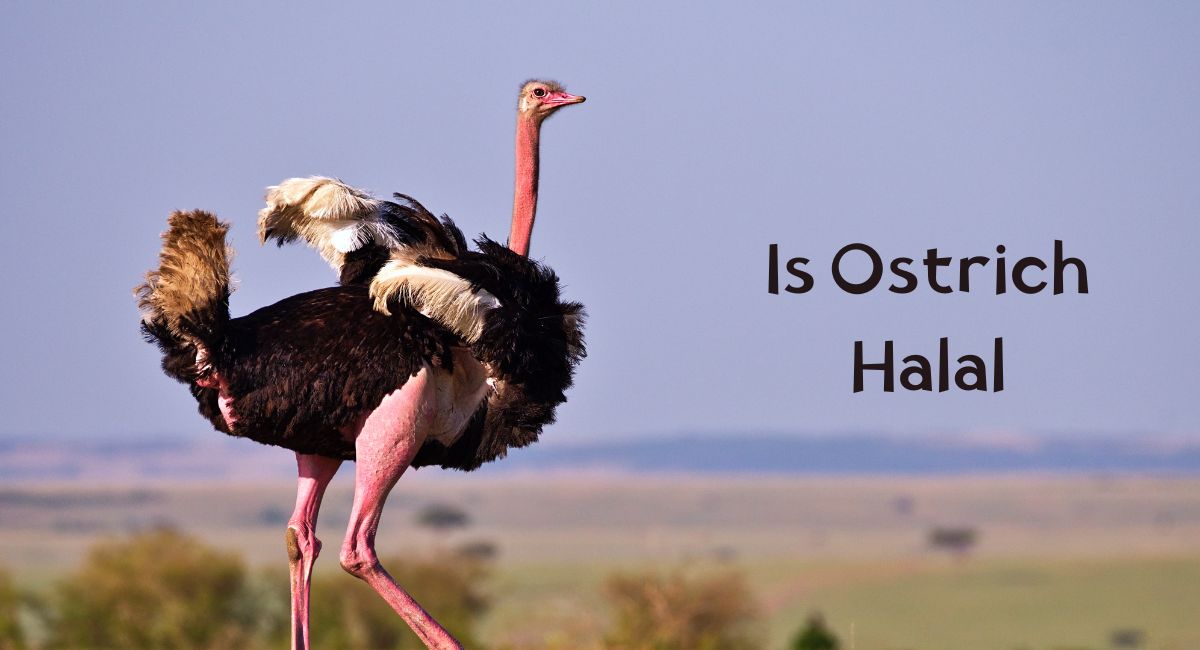When it comes to dietary restrictions, understanding what is and isn’t allowed can be a bit of a puzzle. For those who follow the Halal lifestyle, the question of whether ostrich and ostrich meat is permissible can be confusing. After all, ostriches are birds, and birds are usually off-limits because they are not slaughtered according to specific Islamic practices.
However, when it comes to ostrich, the answer is a bit more complicated than a simple yes or no. Let’s take a closer look at the issue and explore whether folks who follow a Halal lifestyle can add a little ostrich to their diet.
What is Ostrich Meat
Ostrich meat refers to the meat of the ostrich. It is a lean source of protein that can be a great alternative to traditional red meats like beef or pork due to its lower fat content.
It is also rich in iron and other essential vitamins and minerals, making it a healthy choice for those looking to maintain a balanced diet.
Ostrich meat is primarily found on the thigh and hindquarter of the ostrich, with lesser amounts on the forequarter. It is known for being even leaner than white meat chicken or turkey and is often touted as a healthy alternative to beef.
One unique aspect of ostrich meat is its anatomy, which leads to a wider variety of primal muscle cuts than traditional animal protein sources. Each cut has its own characteristics that can influence the nuances of its taste and texture, as well as which cooking method will deliver the best results.
In terms of taste, ostrich meat is often compared to a leaner cut of grass-fed beef, with a richer, nuttier flavor than traditional chicken or turkey. Some say it tastes similar to grass-fed beef, but with less marbling due to its leanness.
When cooking ostrich meat, it is important to keep in mind its leanness and tendency to become tough if cooked for too long. Ostrich meat can be cooked in a similar way to any other red meat, adjusting the cooking time to account for its quick cooking nature. Flour can be used to coat the meat before cooking to help it retain moisture and tenderness.
Is Ostrich and Ostrich Meat Halal
Yes, Ostrich meat is considered halal in Islam. According to Islamic scholars, there is no prohibition on consuming ostrich meat. Some Islamic scholars even consider ostriches to be halal birds since they are non-predatory birds. There are several pieces of evidence that suggest that ostrich meat is halal in Islam.
- First, Allah has blessed His slaves by subjugating to them that which is in the heavens and on earth, and it is difficult to enumerate all the animals that are permitted to eat. The basic principle concerning all of them is that in general, they are permissible except for those that have been excluded.
- Second, the companions of Prophet Muhammad, peace be upon him, considered the ostrich of the same value as a goat, which indicates that its meat is lawful to eat.
- Third, there is no explicit mention of ostrich meat being haram in the Quran or Hadith, and the general consensus among scholars is that it is halal.
- Finally, the Hanafi school of thought considers ostriches to be halal, similar to other birds such as chickens and ducks, provided they are slaughtered in accordance with Islamic law.
Therefore, there is enough evidence to support the permissibility of consuming ostrich meat in Islam.
Is Ostrich Egg Halal
Yes, according to multiple sources, including Islamic scholars and halal food guides, ostrich eggs are halal. Ostriches are considered permissible animals for slaughter and consumption in Islam, and their eggs are also considered halal as they are produced by an acceptable bird.
Despite the fact that ostriches may eat their own dung, it does not render their meat or eggs impermissible for consumption in Islam.
It is worth noting that while ostriches and their eggs are considered halal, there is some debate among Muslims regarding their consumption due to cultural and personal preferences.
However, according to Islamic law, ostrich eggs are considered inherently halal and permissible for consumption.
One ostrich egg contains around 2,000 calories, which is much higher than a chicken egg, and it has more magnesium and iron but fewer vitamins E and A. They are also a good source of protein, and other nutrients such as calcium, phosphorus, riboflavin, and thiamine.
They can be prepared in various ways, such as boiled, fried, or scrambled, and can be used in baking as well.
However, ostrich eggs are expensive and may not be practical for everyday consumption. Additionally, due to their size, they may not be suitable for everyone, especially those with dietary restrictions on calories or cholesterol. Nevertheless, ostrich eggs can be a part of a healthy, well-balanced diet if consumed in moderation.
Discover the intricacies of halal poultry consumption in these informative guides, covering a range of poultry options to ensure you make informed choices in your dietary preferences.
Is Chicken Halal in USA: Dive into the world of halal poultry as we explore whether chicken meets the criteria for halal consumption. Learn about the guidelines and considerations in this enlightening article.
Is Duck Halal: Uncover the halal status of duck meat with our detailed examination. Discover the factors that determine whether duck is permissible for consumption in Islamic dietary laws.
Are Pigeons Halal: Delve into the intriguing world of pigeon meat and its halal classification. Gain insights into the nuances that influence whether pigeon is considered halal or not.
Is Turkey Halal in Islam: Explore the halal status of turkey, a popular choice for various dishes. Uncover the specific criteria that determine whether turkey can be consumed in accordance with Islamic dietary laws.






